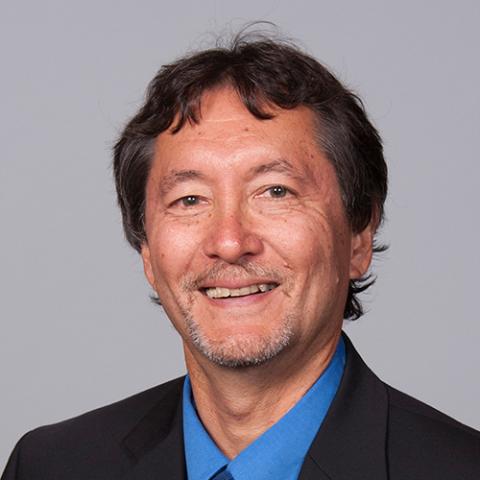Research lab: Geoffrey Maruyama
Focus
- Integrating traditional and contemporary conceptual and methodological approaches to empirically examine social psychological processes and how they affect a range of experiences, outcomes, and attitudes
- Pairing academic efforts with community-based experiences to connect students' learning to important civic and community issues and relate class/community connections to academic success
- Collaborating with practitioners and community partners to develop effective approaches for addressing social-emotional and academic needs of students of all ages
- Examining ways of understanding social bases of academic success, particularly for students from groups that historically have had lesser access to academic opportunities, achievement, and attainments
- Investigating how different individuals and communities experience and comprehend current political and cultural events in order to better understand current divisions and polarization within our society
Projects
Social emotional development:
We study a range of social psychological factors that influence student academic achievement and attainment outcomes. In particular, we have been focusing on ways of increasing engagement of students with their institutions. That work has examined how engaging students with communities can contribute to academic success. Our work has drawn from a range of conceptual bases largely from social psychology, including “non-cognitive” factors categorized by Sedlacek, growth mindset of Dweck and colleagues, GRIT of Duckworth, Tovar’s mattering, self-efficacy, Schreiner’s Thriving instrument, and theories including attribution theory, delay of gratification, and achievement motivation that precede much of the current work on social and emotional factors related to academic success.
Socially engaged research:
We also look at a range of engaged projects with community partners, particularly work in areas and on topics related to populations under-represented in post-secondary education. This recently has included preliminary work on issues of student mental health and academic success.
Prior work
First in the World (FITW) Grant:
This four-year grant from the U.S. Department of Education, Fund for the Improvement of Post-Secondary Education (FIPSE) funded the University of Minnesota and five partner institutions in an effort to engage under-represented and low-income students and bridge campus-community cultural divides by developing deeper partnerships with diverse communities.
Student work concurrent with FITW:
The Unguide survival resource for and by those who post-secondary education was not designed for.
Quote from Geoffrey Maruyma

My primary research has focused on achievement processes in schools, particularly on social processes and on antecedents of educational success; on research methods for educational and other applied settings; and, recently, on action research approaches in challenged communities and engaged scholarship in urban settings.
Current researchers

Tai Do (he/him/his)
PhD Candidate
Tai’s research combines [critical] education, social psychology, and measurement frameworks and practices to better understand culturally-rich students’ success in college and how to best support that success. In particular, Tai is interested in sense of belonging and the intrapsychic and interpersonal processes that elicit and facilitate college students’ feelings of belonging. His research, teaching, and mentorship are aimed at supporting future student-scholars from intersectional and underserved backgrounds, including but not limited to, students from low-income, first-generation, and/or underrepresented race/ethnic backgrounds. Get more information on Tai's work.
Shelby Weisen
PhD Student
Shelby’s research focuses on the intersection between social and educational elements of psychology with specific interest in collaborative learning, academic feedback, and intercultural competence in undergraduate classrooms. With the aim of becoming a professor, Shelby aspires to complete research projects that will give her future students a better classroom experience.

Marisa Peczuh
Isa’s research is focused on equitable social-emotional learning (SEL). She is particularly interested in acknowledging systems/contexts as well as celebrating students’ strengths. Her research examines the positive impacts of equitable SEL for students of color and seeks to understand the benefits for all students. Potential outcomes of her work are improving students’ school experiences, social-emotional development, and academic achievement. At heart, Isa aims to use translational research to inform practice and policy.
Past researchers
Ashley Hufnagle
Assistant Professor of Psychology
St. Catherine University
Dr. Carolyn Dienhart
Associate Principal
Korn Ferry
Dr. Isabel Lopez-Hurtado
Postdoctoral Research Fellow
Centro de Investigación Científica y de Educación Superior de Ensenada
Dr. Wei Song
Research Scientist
A.J. Drexel Autism Institute
Dr. Lara Jessen
Market Research and Insights Consultant Manager
Blue Cross and Blue Shield of Minnesota
Dr. Yu-Chi Wang
Post Doctoral Fellow, Boston Children's Hospital -
Harvard Medical School
Indah (Fitri Nur) Wahyuni
Teaching Quality Assurance
Kodland
Miguel Angel Ovies-Bocanegra
Doctoral Student
Northwestern University
Jason Johnson
Chief Data Scientist
DatascienceCZ
Dr. Anthony Schulzetenberg
UX Research Lead
LexisNexis
Carly Ward, MA
Principal Survey Operations Manager
Forrester
Wanqi Yang, MA
Recent publications
Schulzetenberg, A. J., Wang, Y-C., Hufnagle, A., Soria, K. M., Maruyama, G., & Johnson, J. (2020). Improving outcomes of underrepresented college students through community-engaged employment. International Journal of Research on Service-Learning and Community Engagement, 8(1), Article 11. https://doi.org/10.37333/001c.18719.
Maruyama, G., Furco, A., & Song, W. (2018). Enhancing Underrepresented Students’ Success Through Participation in Community Engagement. In Mitchell, T. D., and Soria, K. M. (Eds), Educating for Citizenship and Social Justice: Practices for Community Engagement at Research Universities, pp. 221-235. Cham, Switzerland: Palgrave McMillan Publishing (Springer Nature).
Ward, C., Maruyama, G., Jessen, L., Song, W., Kratchmer, L., & Zeaske, R. (2018). Attitudes toward Food Insecurity in the United States. Analyses of Social Issues and Public Policy, 18 (1), 400-424. Doi: https://doi.org/10.1111/asap.12168.
Maruyama, G., & Westerhof, L. (2017).Education: Building trusted partnerships with schools. In L. R. Tropp (Ed.), Making research matter: A Psychologist's Guide to Public Engagement. Washington, DC: APA Books, pp. 123-139. ISBN 978143382849. DOI: https://content.apa.org/PsycBOOKS/toc/16041.
Maruyama, G., & Van Boekel, M. (2014). Action Research. In Oxford Bibliographies in Psychology. Dana S. Dunn (Ed.). New York: Oxford University Press.
Maruyama, G., & Ryan, C. (2014). Research Methods in Social Relations, 8th Edition. Oxford, England: Wiley-Blackwell. ISBN: 978-1-118-76497-8.